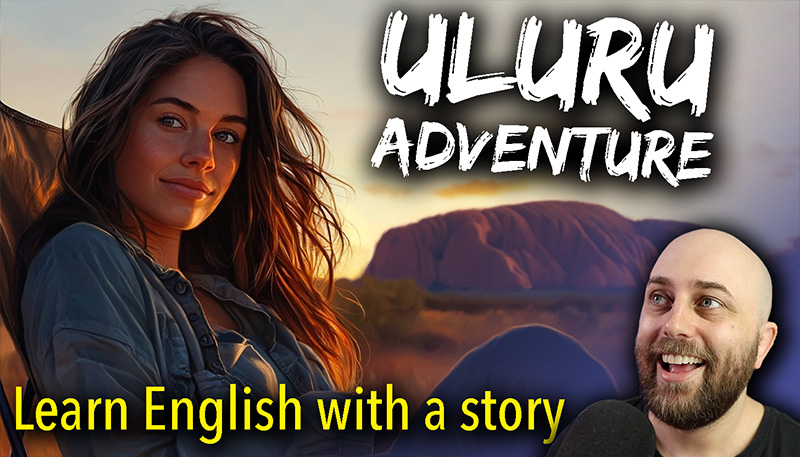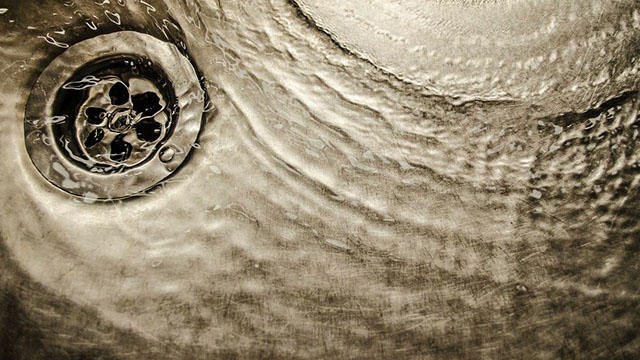AE 498 – Expression: Down-to-Earth
Learn Australian English in this expression episode of The Aussie English Podcast where I teach you how to use DOWN-TO-EARTH like a native speaker.
AE 498 – Expression: Down-to-Earth
Australia is a vast and lucky land. Beneath our feet is a treasure trove of unimaginable riches. But this story is about much more than precious minerals and dusty mineshafts. For 150 years, mining has changed the lives of us all in unexpected and extraordinary ways. It sparked waves of mass immigration and ignited political revolt.
****
G’day, you mob! Welcome to this episode of the Aussie English Podcast, the number one podcast for anyone and everyone wanting to learn English so… and the Aussie English Podcast guys is brought to you by the Aussie English Classroom. If you would like to learn English even faster and have access to weekly courses, videos, quizzes, vocab lists, all the extra stuff that will help you get your English to the next level, make sure that you go to theaussieenglishclassroom.com, sign up and it’s just a dollar for your first month. So, get in there and give it a go! You’ve got nothing to lose!
If you’re the kind of person who just wants access to the transcripts and MP3s for the podcast, you can get access to them at theaussieenglishpodcast.com, you can sign up and for the price of one coffee per month you’ll get access to all of the transcripts and MP3s.
Anyway, that aside, today’s intro scene, guys, was the intro to a documentary called Dirty Business: How Mining Made Australia, and this was on the Sterling Documentaries YouTube channel. So, I will put a link into the transcript today so that you can watch that entire documentary on their channel on YouTube if you so choose, it’s pretty interesting. And in today’s Aussie English fact we will go through mining and the history of mining in Australia.
Anyway, guys, as usual, let’s get into an Aussie joke before we go through the expression, the definitions, the examples of how I would use it, the listen and repeat exercise and then the fact, okay?
So, the Aussie joke today guys:
My dog used to chase people on a bike a lot. It got so bad, finally, I had to take his bike away.
So, this isn’t a question and answer joke this time, it’s a story and it’s funny because the first sentence has you thinking there is a dog chasing someone on a bike. A person who is on a bike, but actually it’s the dog who is on the bike chasing people, right? So, that sentence can be actually taken two ways and this is something interesting about English, right?
So, I’ll say the sentence again. My dog used to chase people on a bike a lot. So, he could be chasing people on a bike, as in people riding bikes or it could be that his dog was chasing people whilst the dog was on a bike, right? And then the last line, it got so bad, finally, I had to take his bike away. So, now you’re like, ahhhh, it was the dog’s bike. (I) got it, got it.
So, we have those jokes all the time in English where the first line sounds normal and then the second line shows you that it is not what you thought the first line was, okay?
So, today’s expression is ‘down-to-earth’, to be ‘down-to-earth’. And this was suggested by Lily in the private Facebook group for Aussie English Classroom members. Good job, Lily!
So, as usual guys, let’s go through and define the words in the expression ‘down-to-earth’, ok? ‘Down-to-earth’. I’ll break it up into the individual words.
‘Down’. Obviously, ‘down’ means downwards, right? The opposite of up or upwards, downwards is towards the ground, right? ‘Down’.
‘To’ is towards, in the direction of something.
And, ‘earth’ is the name of the planet, right? The planet Earth. But we often use this to mean the ground or the soil, right? If I’m standing up, usually my feet are on the Earth. If I am digging in the backyard, I might be moving earth around as in the ground or as in soil.
So, what does the expression ‘down-to-earth’ mean? And you’ll often hear this as a compound adjective, as in, someone is ‘down-to-earth’, or Pete is a ‘down-to-earth’ person, right? It could be an adjective in front of a noun as well.
So, if you are down-to-earth or if someone is down-to-earth, it can mean a few different things, although, they’re sort of similar, okay? Practical, reasonable, and friendly, if you’re a down-to-earth person. It could be also that you are practical and directly deal with people so you don’t sort of beat around the bush, right? You’re very straightforward. You’re down-to-earth. But, it can also mean someone who’s very easy to talk to, right? So, they’re not up in the clouds, their head’s not in the clouds, they’re down-to-earth, they’re easy to talk to.
So, let’s go through three examples of how I would use the expression to be ‘down-to-earth’, right? If someone’s ‘down-to-earth’, alright.
Example number one: imagine that you are a foreign student and you have arrived in Australia from somewhere overseas. You’re studying English, you’ve organised your school, you have organised your accommodation, but you need to find a job, right? So, you have asked your friends maybe at the school that you’re learning English at, where can I apply for a job? How do I apply? What do I need to do for my CV, my résumé? And then you get that all sorted, you print out a few copies of your résumé and you head down to a local coffee shop or a cafe where your friends have suggested that you could submit your resume or your CV and apply for a job. So, you do that, you go down there, and you find out the people there are really down-to-earth. So, you get along with them really well, you get along like a house on fire, and they decide that they will give you the job. So, lo and behold, you get the job, you really had a good time with them. They were really down-to-earth, you got hired and the rest is history. The people you talk to were really down-to-earth. They were very easy to talk to, very practical, very reasonable, very friendly.
Example number two: so, you are going to a party where you know that there are going to be loads of rich people, but you’re just an average Joe, right? You’re just an average middle-class, white-collar, or even blue-collar worker. So, you’re worried everyone at the party is going to be really pretentious, really pompous, stuck up and, quite frankly, unpleasant to be around because that’s your opinion. That is the stereotype of rich people, right? So, you show up in your modest car. Maybe it’s a Holden Commodore or Ford Falcon. You get out and you see Ferraris everywhere, Lamborghinis, Mercedes, BMWs, Audis, everywhere around you. The party’s in this huge house, a mansion with butlers, waiters, servants, gardeners running around at the guests’ beck and call the whole time. The grounds of the house are huge, massive lawns, fountains, statues, and you go in. Everything’s really extravagant. Everything is really gourmet food wise and everything is very luxurious. However, when you start chatting to people, you realise that despite these people being loaded, despite them having a lot of money, many of the guests are actually incredibly down-to-earth people. They are really down-to-earth, meaning that you can have great conversations with them. They’re very practical, they’re very direct, they’re very friendly. They just seem like normal down-to-earth people, right? So, the idea here being that you thought that they were going to be stuck up with their heads up in the clouds, you know, on a different level from you, but it turns out they were down-to-earth with their feet firmly placed on the ground, they were very well-grounded.
Enjoying Aussie English?
Support AE on Patreon today so I can bring you even better content!
Example number three: Imagine you’re a young lady. You’ve gone out on a date with a boy, you’ve hit it off, you’ve done really well, you decide you’re going to be in a relationship, and you want to take him home to meet the family, but you’re worried that your dad he has high expectations and he’s very judgmental when it comes to boys who want to date you, right? For your romantic partners. So, you’re worried about his high standards and how this boy that you’re seeing is going to perform. So, you take him over and when your dad meets your boyfriend, he quickly realises that he is a great kid, he’s a great guy, he’s got a good head on his shoulders, his head isn’t in the clouds. He’s very practical, direct, easy to talk to. Everyone gets along like crazy at dinner and when he leaves your father might talk to you and say, well done, he seems like a great guy. He seems like a very down-to-earth guy. I approve. Your boyfriend is very down-to-earth. He is an awesome guy.
Awesome, guys! well I hope you now understand the expression to be ‘down-to-earth’. This can be to be a practical, reasonable or friendly person. It can be that when you deal with people you do so in a very direct and practical manner and it can also mean that you’re very easy to talk to so, you’re very realistic when you talk to people.
So, as usual, let’s go through the listen and repeat exercise now, guys, where you guys can practice your pronunciation. So, listen and repeat after me, guys. If you’re working on your Aussie English accent, obviously, try and mimic my accent as much as possible as I have a general Australian accent. If you are working on a different accent just go with that, practice that accent. Let’s go!
To
To be
To be down
To be down to
To be down-to-earth x 5
Good job, guys, good job! So now we’re going to go conjugate through the sentence. ‘I used to be down-to-earth’. ‘You used to be down-to-earth’. So, we’ll be using ‘used to’. And remember, if you ‘used to’ and ‘do something’, ‘be something’, whatever it is, it means that that thing used to happen previously quite a lot in the past, right, but it’s no longer happening. For example, I used to go to high school, I used to like surfing, I used to have a lot of friends, I used to live in Melbourne. It’s something that happened in the past, but no longer happens today, okay? So, let’s go!
I used to be down-to-earth.
You used to be down-to-earth.
He used to be down-to-earth.
She used to be down-to-earth.
We used to be down-to-earth.
They used to be down-to-earth.
It used to be down-to-earth.
Good job, guys! Remember, if you would like to go through this pronunciation exercise in more detail where I take you through step by step all the aspects of pronunciation, I talk about intonation and rhythm, things like that in a video make sure that you go to theaussieenglishclassroom.com. Sign up and you will get access to two days of video for this course that will go with this expression episode, as well as all of the previous courses and you can complete them in your own time, anywhere you like, online in the Classroom.
Anyway, guys, let’s get into the Aussie English fact for today and then we will finish up. Alright, so today’s expression was about Earth as in the ground. Therefore, I was thinking for the Aussie English fact maybe we could talk about mining in Australia, because mining is a relatively big deal in Australia.
So, mining in Australia is a significant primary industry and contributor to the Australian economy. I’m sure if you are here already, you’ve probably seen it on the news as they, the politicians, are always talking about mining.
Numerous different kinds of ores and minerals are mined across the continent and, historically, mining booms have encouraged immigration to Australia.
In the early days of Australia, when the colonies were being developed, mining contributed a significant amount to preventing potential bankruptcy of these early colonies so they were making a lot of money from mining.
Copper and silver were discovered in South Australia around the 1940s, which led to the export of the ore and a great deal of immigration of skilled miners and smelters into Australia.
The first economic minerals in Australia were silver and lead, and that started in 1841 in a mine at Glen Osmund in Adelaide, South Australia. The value of these mines though was soon overshadowed by the discovery of copper at places like Kapunda, Burra, and the Copper Triangle, they are three towns called Moonta, Kadina and Wallaroo. These are all indigenous names, I take it, and this was located at the top of the York Peninsula.
About 10 years later in 1851, gold was found in New South Wales and Victoria and the Australian gold rushes took off. The influx of wealth that the gold brought soon made Victoria Australia’s richest colony by far, and Melbourne, the largest city on the island.
By the middle of the 1850, 40% of the world’s gold was dug out of Australian soils.
Today, mining activity occurs in all states and territories across Australia, but only an estimated 0.02% of Australia’s land surface has directly been impacted by mining. That was actually a lot less than I had expected.
So, major active mines in Australia include the Olympic Dam, in South Australia. This is a copper, silver, and uranium mine believed to have the world’s largest uranium resource. And the Super Pit gold mine, which has replaced a number of underground mines near Kalgoorlie in WA, Western Australia.
So, which minerals and ores has Australia primarily mined? We mine iron ore and we’re the second largest supplier after China, supplying about almost a billion metric tons of iron ore every year, and that is 25% of the world’s output.
We mine nickel, 9% of the world’s output, aluminium that’s almost 30% of the world’s output, number one we are for aluminium. We mine copper, we mine gold, we mine silver, and we mine uranium. Those are the biggest ores and minerals that we mine in Australia. But we also mine diamonds, opals, zinc, coal, oil shale, petroleum, natural gas, silica, and other rare elements as well.
Despite the value of mining in Australia and the revenue that it generates for the Australian Government and obviously the Australian people, many people would like to see an end to mining in Australia, especially, for certain minerals and ores others such as coal, which is a relatively contentious mineral or that is dug up from the ground and burnt in order to create electricity, but it is relatively inefficient and it contributes heavily to climate change. That said, mining is arguably the backbone of the Australian economy and it will likely remain a big part of Australia into the future for better or worse.
So, I hope you enjoyed today’s episode, guys. I hope you have a great weekend and I’ll chat to you soon.
See you later!
Here's what you get when you sign up!
- Read while you listen using the Premium Podcast player.
- Understand every word in every episode.
- Download all PDF transcripts and MP3s for 600+ episodes.
- Get access to bonus member-only episodes.













Responses